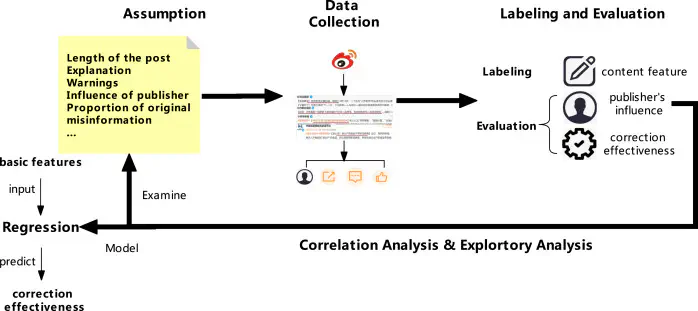
Abstract
The rapid dissemination of misinformation in social media during the COVID-19 pandemic triggers panic and threatens the pandemic preparedness and control. Correction is a crucial countermeasure to debunk misperceptions. However, the effective mechanism of correction on social media is not fully verified. Previous works focus on psychological theories and experimental studies, while the applicability of conclusions to the actual social media is unclear. This study explores determinants governing the effectiveness of misinformation corrections on social media with a combination of a data-driven approach and related theories on psychology and communication. Specifically, referring to the Backfire Effect, Source Credibility, and Audience’s role in dissemination theories, we propose five hypotheses containing seven potential factors (regarding correction content and publishers’ influence), e.g., the proportion of original misinformation and warnings of misinformation. Then, we obtain 1487 significant COVID-19 related corrections on Microblog between January 1st, 2020 and April 30th, 2020, and conduct annotations, which characterize each piece of correction based on the aforementioned factors. We demonstrate several promising conclusions through a comprehensive analysis of the dataset. For example, mentioning excessive original misinformation in corrections would not undermine people’s believability within a short period after reading; warnings of misinformation in a demanding tone make correction worse; determinants of correction effectiveness vary among different topics of misinformation. Finally, we build a regression model to predict correction effectiveness. These results provide practical suggestions on misinformation correction on social media, and a tool to guide practitioners to revise corrections before publishing, leading to ideal efficacies.